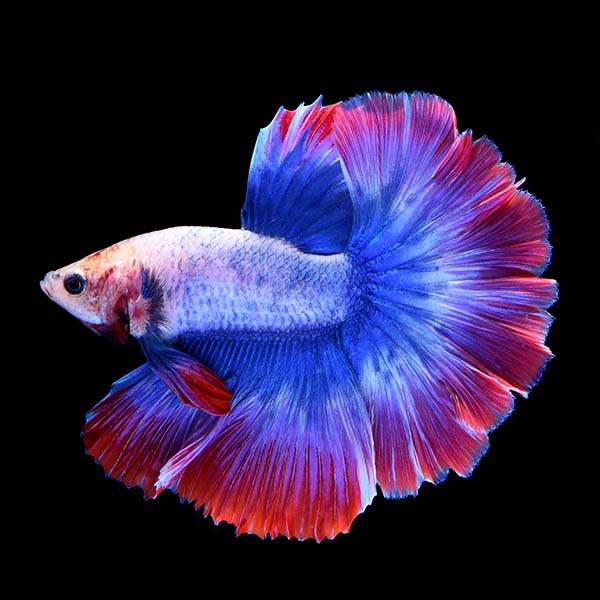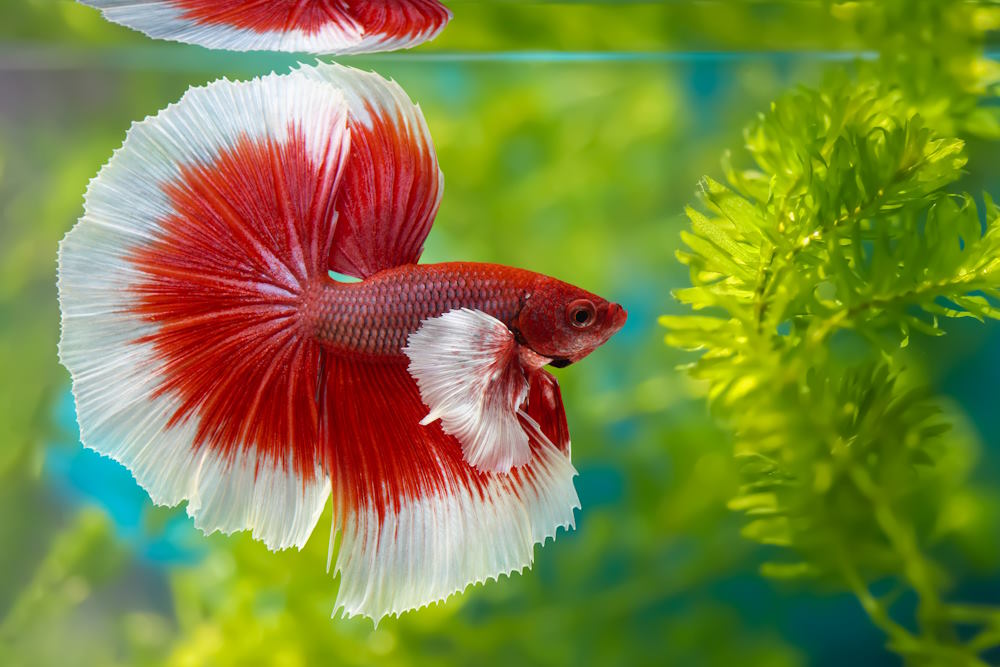Understanding Betta Fish Behavior: What Every Owner Ought To Know
Understanding Betta Fish Behavior: What Every Owner Ought To Know
Blog Article
The Ultimate Guide to Betta Fish Care: Crucial Tips for Maintaining a Healthy and Successful Aquarium Setting
Effective Betta fish care demands a thorough understanding of their distinct ecological and physical demands. Establishing a suitable aquarium starts with selecting the right container size and making sure optimal water problems, which are vital for the wellness and health of your Betta.
Choosing the Right Container
Picking the proper container for your Betta fish is essential to guaranteeing its wellness and wellness. Bettas grow in environments that imitate their natural environments, which generally include tranquility, cozy waters. A tank size of at least five gallons is advised to provide appropriate swimming area, as smaller sized containers can lead to tension and wellness concerns for these vivid fish.
When choosing a storage tank, consider the container's form and filtering system. Additionally, a reputable filtration system is important to maintain water top quality and lessen the frequency of water changes.
Temperature policy is another vital aspect; Bettas choose water temperature levels in between 76 ° F and 82 ° F. Purchasing an excellent heater will ensure that the water continues to be within this variety, promoting a healthy and balanced and energetic lifestyle for your Betta. Last but not least, supplying proper tank decors and hiding places will help minimize stress and urge natural actions, even more boosting your Betta's wellness.
Maintaining Water Top Quality
Maintaining optimal water high quality is essential for the health and wellness and long life of Betta fish. This needs normal monitoring of different criteria, including temperature, pH, ammonia, nitrite, and nitrate degrees. Bettas prosper in temperatures between 76 ° F and 82 ° F, so preserving a secure temperature level is important. Abrupt variations can result in stress and illness.
The pH level must ideally drop between 6.5 and 7.5. Routine testing making use of a dependable water testing kit can aid ensure these specifications remain within the appropriate ranges. Ammonia and nitrite levels ought to constantly go to 0 ppm, as even low focus can be toxic to Betta fish. Nitrate degrees should be maintained under 20 ppm to avoid long-term wellness issues.
Routine water changes are important to preserving water quality. It is suggested to transform 25-50% of the container water weekly, depending on the container size and stocking degrees. Utilizing a high-grade water conditioner can aid eliminate unsafe chemicals from faucet water, ensuring a secure environment. Additionally, including a durable filtering system can help in maintaining water clearness and high quality, offering a healthier habitat for your Betta fish.
Ideal Feeding Practices
Supplying a balanced diet is crucial for the health and wellness and dynamic coloration of Betta fish, as their nutritional requirements play a significant role in their total well-being. Betta fish are carnivorous by nature, calling for a diet high in healthy protein. A combination of premium pellets, frozen or online foods such as bloodworms, salt water shrimp, and daphnia can provide the necessary nutrients they need.
Feed your Betta fish two to three times a day, using only what they can eat within 2 to 3 mins to avoid overfeeding and keep water quality. Overfeeding can result in weight problems and health problems, including swim bladder condition. It is vital to monitor their dietary intake and readjust portion dimensions appropriately.
Along with healthy protein, a balanced diet regimen ought to include vitamins and minerals to promote optimal wellness. Consider supplementing their diet plan with top notch flakes or pellets specifically created for Betta fish, as these often have necessary ingredients.

Developing an Appropriate Environment

Water high quality is vital; keep a temperature in between 76 ° F and 82 ° F, and ensure the pH degree varies from 6 - betta fish.5 to 7.5. Normal water imp source adjustments of 25-50% each week will help keep contaminants away and ensure a steady atmosphere
Integrating plants and concealing places is essential, as Betta fish are normally territorial and appreciate having locations to discover and pull away. Live or silk plants, along with caverns and ornaments, can create a stimulating environment.

Normal Health Checkups
Conducting regular health and wellness check-ups is crucial for making sure the health of Betta fish, as early discovery of possible issues can avoid serious illness. These checkups should include a thorough exam of the fish's physical condition, behavior, and ecological factors.
Begin by observing the Betta fish for any kind of signs of distress, such as lethargy, anorexia nervosa, or uncommon swimming patterns. In addition, examine the fins and body for indicators of discoloration, lesions, or fin rot, which can show infections or parasites. On a regular basis keeping track of the water top quality in the fish tank is similarly vital; parameters such as pH, ammonia, nitrite, and nitrate degrees should be preserved within ideal arrays to stop anxiety and ailment.
Furthermore, think about keeping a log of wellness observations and water high quality examinations. This record can help with the recognition of trends or persisting issues. If any kind of abnormalities are found during the appointment, it is vital to get in touch with a veterinarian experienced in aquatic pets. Prompt intervention can make a considerable distinction in the recovery of your Betta fish, making certain a long and healthy and balanced life in a properly maintained fish tank environment.
Final Thought
Finally, successful Betta fish care depends upon producing and maintaining an optimal fish tank atmosphere. Key elements consist of picking a properly sized storage tank, guaranteeing consistent water quality, sticking to excellent feeding methods, and creating a habitat that minimizes tension. Routine wellness check-ups are necessary for basics early detection of prospective issues. By adhering to these guidelines, aquarists can advertise the you can try here wellness and vibrancy of Betta fish, ultimately causing a flourishing marine environment.
Report this page